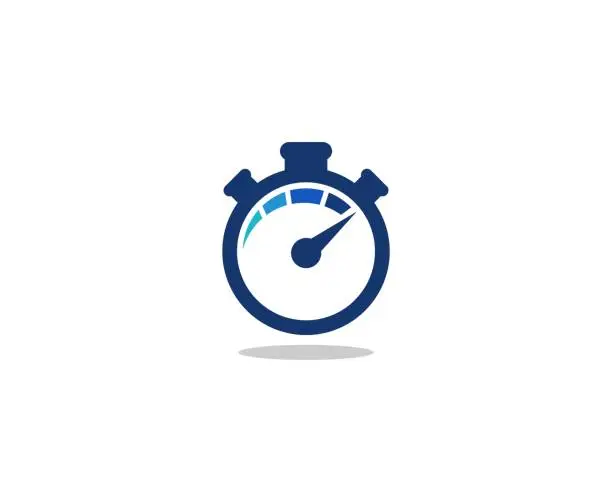Sell House As Is

Every homeowner dreams of a seamless sale: a buyer enchanted by their property, a swift negotiation, and a smooth transition to the next chapter of their life. But what happens when your home, your cherished asset, needs major repairs? The prospect of intensive home repair projects, from roof replacements to foundational fixes, can be daunting. Some might think, “Can I even sell my house as is?” Fortunately, there’s a glimmer of hope. Enter the world of cash house buyers like R&H Distressed Properties. For those thinking, “I need to sell my house fast,” or are daunted by the extensive repairs and aesthetic challenges – the “we buy ugly houses” promise might just be the solution you’ve been waiting for. In this comprehensive guide, we’ll unravel the benefits, myths, and realities of selling a house as is and why a cash buyer might be your best option.
Why Selling As Is Can Be a Good Decision
Navigating the labyrinthine process of selling a house can be stressful. It’s amplified when you’re looking at a list of extensive repairs – both minor touch-ups and significant overhauls. Here’s why choosing to sell your home as is might just be your best decision yet:
- Ease and Convenience: There’s a peace that comes with avoiding the whirlwind of home repair projects. No more quotes from contractors, no more waiting days or even weeks for a fixer-upper to transform, and most certainly, no more surprise repair costs draining your bank account. Selling as is means offloading your property, warts and all, and leaving those concerns behind.
- Potential Savings: Major repairs can cost tens of thousands. Whether it’s an urgent roof replacement, foundational work, or just a series of smaller repairs that cumulatively cost a lot, the bill can be steep. By selling as is, you sidestep these costs, ensuring that more money from the sale ends up in your pocket.
- Faster Sale Process: One of the biggest perks of selling as is, especially to cash buyers, is the speed. No more waiting for the right buyer who sees past the blemishes. No more negotiations about repair credits. If you’re thinking, “I want to sell my house fast,” this is undoubtedly your route.
- Transparency and Honesty: Selling a house as is provides a level of transparency to potential buyers. There’s no veneer, no temporary fixes to mask bigger issues. Prospective buyers know the home’s condition from the outset, leading to more genuine and upfront discussions.
- Avoiding Post-Sale Issues: Sometimes, in a traditional sale, buyers come back with complaints or issues post-sale, especially if they feel a major problem was concealed. Selling as is significantly reduces this risk, as buyers are aware of what they’re getting into.
- Emotional Relief: The emotional toll of continuously showcasing a house that needs extensive repairs can be draining. Fielding questions from potential buyers, feeling the need to justify the property’s condition, or simply dealing with the stress of wondering if anyone will buy can all be exhausting. An as is sale can offer much-needed emotional respite.
In a market where most buyers are hunting for their dream home, houses in need of major repairs can sometimes feel like they’re in the shadows. But with the right approach, and the right cash house buyer, selling as is can be not just a necessity, but a strategic and advantageous decision.
Drawbacks of a Traditional Sale

Stepping into the realm of real estate with a house that needs repairs can be an intimidating endeavor. Traditional sales, facilitated mostly by real estate agents, can present a slew of challenges for such properties. Here’s a deeper dive into why a traditional sale might not always be your best option:
- Time-Consuming: Traditional sales can be long-drawn affairs. From hosting multiple open houses to awaiting offers and then the potential back-and-forth negotiations, it can be a lengthy process. This can be even more protracted if your property isn’t in top-notch condition, resulting in fewer interested buyers.
- Cost of Repairs: Working with a real estate agent often means getting a list of recommended home improvements to boost your home’s curb appeal and resale value. But if your home requires extensive repairs, this can lead to significant expenses without the guarantee of a higher price.
- Potential for Lower Offers: A house that needs repairs may attract offers below the asking price. Prospective buyers may reduce their offers, factoring in the estimated repair costs, sometimes even exaggerating them, leading to a lower sale price.
- Dependency on the Local Market: A local real estate agent will often price your property based on the local housing market. In a buyer’s market, where supply exceeds demand, a house that needs repairs might find itself lost among properties that don’t require additional investment.
- Stress of Home Inspection: Traditional sales often come with the requirement of a home inspection. Discoveries during this process can lead to renegotiations, further lowering your sales price or demanding last-minute fixes.
- Higher Closing Costs: Selling traditionally, especially through real estate agents, can mean higher closing costs. These often include agent commissions, which can take a substantial bite out of your proceeds.
- Potential Post-Sale Complications: Even after you think you’ve successfully sold your home, there’s the risk of post-sale disputes. Buyers might feel some issues weren’t disclosed and could seek concessions or legal remedies.
- Emotional Strain: The constant feedback from potential buyers, real estate agents, and even home inspectors can be emotionally taxing. Comments about the property’s condition, the need for major repairs, or the lack of modern upgrades can sometimes be disheartening.
When contemplating selling a house, especially one that requires a touch-up or a major overhaul, it’s essential to weigh the pros and cons. While real estate agents bring expertise and local market knowledge, the traditional sale pathway might be riddled with more challenges than you’re prepared for. In such scenarios, exploring the “sell as is” route with cash buyers can offer a refreshing, streamlined alternative. (read more about selling a house without an inspection here)
Why Some Home Sellers Are Hesitant to Sell As Is

While selling a house “as is” can be a lifeline for many homeowners, it’s undeniable that there’s a certain hesitancy surrounding the process for others. This apprehension is often rooted in misconceptions, traditional beliefs, and sometimes, a lack of information. Let’s delve into some common reasons why homeowners are reluctant to embrace the “sell as is” avenue:
- Perceived Lower Sale Price: One of the most significant concerns for sellers is that they’ll have to settle for a lower selling price if they opt to sell as is. There’s a pervasive belief that cosmetic fixes or minor repairs can substantially increase a home’s resale value.
- Misunderstood Market Dynamics: Sellers often believe that there are fewer interested buyers for homes sold as is. This idea, perpetuated by stories of houses languishing on the market, can deter them from even considering the option.
- Concern Over Reputation: There’s a misplaced fear that selling a home as is, especially one that might be labeled a “fixer-upper,” could somehow reflect poorly on the seller, hinting at negligence or a lack of care during their tenure.
- Lack of Awareness: Not every homeowner is aware of the cash buyer market or companies like “we buy houses” or “we buy ugly houses.” Their primary reference is the traditional sale method, usually mediated by a real estate agent.
- Fear of Exploitation: Some homeowners fear that cash buyers might exploit their need to sell quickly, making offers that are far below a reasonable price for the property, even considering its condition.
- Emotional Attachment: Selling a family home, especially one filled with memories, is an emotional journey. Homeowners might believe that making repairs or upgrades is the best homage to their cherished abode, even if it financially strains them.
- Overestimation of Repair Costs: Occasionally, homeowners might feel that the repairs aren’t as extensive or as expensive as potential buyers or cash investors might think. This could lead them to assume they’d fare better in the traditional market after some minor touch-ups.
- Belief in the Dream Home Vision: Every seller wishes for a buyer who sees their property as a dream home, looking beyond flaws and seeing potential. This hope can sometimes deter sellers from the as is route, holding out for that one buyer who sees the home as they do.
While these concerns are valid, it’s crucial to approach the decision of selling as is with a balanced perspective. Understanding the local market, being realistic about the property’s condition, and seeking advice from trusted sources can help homeowners decide the best route for their unique situation. And for many, selling as is might just be the most practical, stress-free option available.
Advantages of Selling to Cash Buyers

In the intricate landscape of real estate, cash buyers have emerged as a force to be reckoned with. Especially for homeowners looking to bypass the conventional hassles of selling a house, cash buyers like R&H Distressed Properties offer a lifeline. Here’s a deeper understanding of the multifaceted advantages they bring to the table:
- Swift Transactions: Perhaps the most significant advantage is speed. If you’ve ever found yourself thinking, “How can I sell my house fast?”, cash buyers are your answer. Transactions can often be completed in days, as opposed to weeks or months in traditional sales.
- No Repairs Needed: “We buy houses”, they often say, regardless of their condition. Whether your home is a picture-perfect portrait or leans more towards the “we buy ugly houses” spectrum, cash buyers are interested. They’re willing to overlook issues that might deter most buyers.
- Guaranteed Sale: Unlike traditional sales, where deals can fall through due to financing issues, a buyer’s change of heart, or unfavorable home inspection results, cash buyers provide a sense of certainty. Once they make an offer and you accept, the sale is nearly always guaranteed.
- Savings on Fees: Selling to a cash buyer means you can often sidestep many of the fees associated with traditional sales. This includes real estate agent commissions, closing costs, and other related charges.
- Flexibility in Closing: Cash buyers often provide flexibility in determining the closing date, which can be a boon for sellers who might be dealing with other logistics like moving to a new place.
- Reduced Paperwork: The sheer volume of paperwork in a traditional home sale can be overwhelming. Cash sales simplify this process considerably, often streamlining the required documents and making it less daunting for sellers.
- No Showings or Open Houses: Say goodbye to the continuous stream of potential buyers walking through your home at all hours. Cash buyers don’t typically require multiple showings or open houses.
- No Financing Hurdles: Traditional sales often hinge on the buyer securing financing or a mortgage. With cash buyers, this isn’t a concern, eliminating potential obstacles to closing the deal.
- Direct Communication: Working with cash house buyers means direct communication, no middlemen. This can make negotiations clearer, quicker, and more transparent.
- Peace of Mind: For sellers overwhelmed by the prospect of major repairs, or inheriting a house, there’s a peace that comes from knowing they can sell their home as is, without investing more time, money, or emotional energy into it.
In a world where the dynamics of home selling are evolving, cash buyers stand out as an innovative, practical solution for many homeowners. Especially for those looking to sell homes requiring extensive repairs or those in urgent need of a sale, cash buyers offer an avenue worth considering.
The Reality of “We Buy Ugly Houses”

The phrase “We buy ugly houses” has become somewhat iconic in the real estate industry, particularly in the cash buyer niche. While it may sound like a catchy marketing slogan (and it is), there’s more to this mantra than meets the eye. Let’s pull back the curtain and dive into the reality behind these often-misunderstood companies and what they genuinely offer:
- It’s Not Just About Aesthetics: While the term “ugly” might conjure images of dilapidated homes with peeling paint and overgrown lawns, it’s not just about the house’s physical appearance. Often, these companies refer to homes with structural issues, outdated designs, or even those entangled in legal complications.
- Offering a Quick Exit: One of the primary appeals of the “We buy ugly houses” proposition is speed. Whether it’s a homeowner facing foreclosure, an inherited property they can’t maintain, or someone looking to relocate quickly, these companies provide an expedited solution.
- Transparent Processes: Contrary to some misconceptions, many of these cash buyers are forthright about their processes. They typically assess the house’s condition, the local market value, and potential repair costs to determine a fair price.
- No Obligation Offers: Most “We buy ugly houses” companies will make a no-obligation offer. This means homeowners can get an offer without being bound to accept it, providing flexibility to consider other options.
- Eliminating the Repair Burden: Homeowners with houses that need extensive repairs or renovations can find solace in this model. They can sidestep the challenges and costs of making repairs and instead focus on their next steps.
- A Boon in a Saturated Market: In areas where the local market is saturated with properties for sale, standing out can be tough, especially if the house is perceived as “less than perfect.” Cash buyers can be a saving grace in such scenarios.
- Understanding the Profit Motive: Like all businesses, these companies operate to make a profit. They often purchase properties below market value, invest in repairs, and then resell them for a profit. This model is what allows them to take on homes others might consider “risks.”
- Reputation Matters: As with all industries, not all “We buy ugly houses” companies are created equal. It’s crucial for sellers to research and choose established companies with positive reviews and a track record of transparent dealings.
The “We buy ugly houses” model is more than just a catchy phrase. For many homeowners, it offers an escape route from challenging situations, providing them with a clear path to sell their property and move forward. As always, homeowners should approach the process informed, ensuring they’re partnering with reputable cash buyers who provide fair and transparent offers. (Read more about why open houses aren’t worth it)
Choosing Between Real Estate Agent Vs. Cash Buyer

The choice between selling through a real estate agent or directly to a cash buyer is a pivotal decision for homeowners. Both paths have distinct advantages, and what works best depends on the individual’s circumstances, priorities, and the home’s condition. Here’s a comprehensive look at both options to help you navigate this crucial decision:
- Real Estate Agent – The Traditional Route:
- Expertise and Guidance: An expert real estate agent, especially a local real estate agent familiar with the local housing market, can offer invaluable advice on pricing, staging, and marketing.
- Larger Buyer Pool: Through MLS listings, open houses, and their networks, agents can expose your property to a broader audience, attracting more buyers.
- Potential for Higher Price: With effective marketing and the right buyer pool, homes might fetch a higher price, especially in a seller’s market.
- Negotiation Skills: Agents bring their negotiation expertise to the table, potentially securing better terms and conditions for the seller.
- Cons: This route can involve more time, higher closing costs, commissions to the agent, and potentially making repairs or updates to attract buyers.
- Cash Buyer – The Expedited Route:
- Speed: As highlighted earlier, cash buyers can often close deals in days or weeks, a significant advantage for those in a hurry.
- Guaranteed Sale: The deal is almost always certain once you accept a cash offer, eliminating potential hurdles later.
- Savings: By bypassing agents, you can save on commissions, closing costs, and repair costs.
- Simplified Process: With fewer people involved and no financing contingencies, the sale process is straightforward.
- Flexibility: Cash buyers often offer more flexibility in terms of the sale’s timing, moving out, and other logistics.
- Cons: The offer might be below the potential market value, as cash buyers factor in repair costs and their profit margins.
Key Considerations:
- Urgency: If you need to sell fast, perhaps due to financial strain, relocation, or other personal reasons, cash buyers might be the better choice.
- Home’s Condition: Homes needing major repairs or updates might not attract traditional buyers easily. In such cases, selling to a cash buyer can be a practical decision.
- Financial Expectations: If maximizing profit is your primary goal and you have time on your side, working with a real estate agent might be more beneficial.
- Market Dynamics: In a booming market, real estate agents could help you capitalize on high demand. Conversely, in a slower market, cash buyers offer stability.
In conclusion, the decision to sell through a real estate agent or a cash buyer isn’t one-size-fits-all. It’s vital to assess your priorities, the property’s condition, and the local market dynamics. Whether looking for the expertise of an agent or the speed and certainty of a cash buyer like R&H Distressed Properties, being informed will help you make the best choice for your unique circumstances.
How to Determine If Your Home Is a Fit for an As Is Sale
Making the decision to sell a home “as is” requires careful thought and assessment of various factors. For some, this method of sale is ideal, while for others, it may not be the most advantageous route. Here are steps and considerations to help you determine if your home is suitable for an “as is” sale:
- Assess the Home’s Condition:
- Major Repairs Needed: If your home requires extensive repairs, like roof replacement or foundational issues, selling as is might be an appropriate choice to avoid the high costs of these big-ticket repairs.
- Cosmetic Fixes Only: If your property only requires minor repairs or cosmetic fixes like a fresh coat of paint, you might be better off making these adjustments to increase its resale value in a traditional sale.
- Financial Situation:
- Immediate Funds Needed: If you’re in a situation where you need cash fast, whether it’s due to debts, medical bills, or another urgent financial scenario, selling to a cash buyer for an “as is” sale can provide quick funds to your bank account.
- Ability to Invest: If you have the means to make necessary repairs without straining your finances, it could result in a higher selling price through the traditional route.
- Analyze the Local Market:
- Buyer’s or Seller’s Market: In a seller’s market, there are more buyers than available homes, meaning even houses that need some repairs might find interested parties. Conversely, in a buyer’s market, an “as is” sale might be more appealing due to fewer interested buyers.
- Desire for Convenience:
- Avoiding the Hassle: Selling a home can be a prolonged and sometimes stressful process. If the idea of dealing with open houses, negotiations, and home repairs seems daunting, an “as is” sale might be a fit for you.
- Consult a Home Inspector:
- A professional inspection can give you a clear picture of your home’s condition. The home inspector can identify both minor and major issues that might affect the property’s value. With this knowledge, you can make an informed decision about whether an “as is” sale is right for you.
- Get Feedback:
- Approach local real estate agents and ask for their perspective on your home’s curb appeal and overall appeal in the local market. They can offer insights on how attractive your home might be for traditional buyers versus cash investors.
- Calculate Potential Profit:
- Weigh the potential profit from a traditional sale, after all repairs and real estate fees, against the asking price you might get from a direct cash buyer. Factor in repair costs, time, and potential holding costs like mortgage, utilities, and maintenance.
- Personal Factors:
- Consider any personal or emotional reasons that might influence your decision, such as the desire to quickly move due to a job, family changes, or other life events.
In the end, determining if your home is a fit for an “as is” sale boils down to a blend of objective assessments and personal priorities. Understand your home’s condition, your financial situation, and your personal desires to make an informed choice that aligns with your best interests.
Improving Your Chances in a Seller’s Market

In a seller’s market, where there are more buyers than available homes, sellers hold a distinct advantage. Homes may sell quickly, often receiving multiple offers that can drive up the asking price. However, even in this ideal scenario, there are strategies home sellers can employ to maximize their benefits. Here’s how you can further improve your chances in a seller’s market:
- Know the Market Dynamics:
- Stay Informed: Regularly discuss with your local real estate agent about the local housing market trends. Understanding buyer behavior and preferences can give you an edge.
- Pricing Strategically:
- Right Price from the Start: While it’s tempting to set a higher price, setting a realistic or even slightly below-market price can induce a bidding war, pushing the sales price up.
- Be Open to Negotiation: Flexibility in your asking price, especially if you get multiple offers, can lead to a quicker home sale.
- Enhance Curb Appeal:
- First Impressions Matter: Simple steps like landscaping, adding a fresh coat of paint, or updating the exterior can significantly increase your home’s curb appeal, attracting more buyers.
- Highlight Key Features: If your house has unique attributes, such as a renovated kitchen, pool, or a spacious backyard, ensure they are showcased effectively.
- Address Minor Repairs:
- Making minor repairs, from fixing leaky faucets to replacing broken tiles, can make a significant difference. Buyers are more likely to make an offer if they feel the house has been well-maintained.
- Staging the Property:
- Professionally staged homes can appeal to a broader range of potential buyers. It helps them visualize their dream home, making them more likely to make a competitive offer.
- Offer Incentives:
- Consider sweetening the deal with incentives such as offering to cover some closing costs, including appliances in the sale, or providing a home warranty.
- Be Prepared for Multiple Offers:
- Work with your real estate agent to develop a strategy for handling multiple offers. This might include setting a deadline for best offers or negotiating terms beyond just the price, like faster closing dates.
- Flexible Showings:
- The more prospective buyers see your home, the better. Be open to showings at varying times to accommodate as many interested parties as possible.
- Transparency:
- Providing a pre-inspection report or disclosing any known issues with the property can build trust with buyers and expedite the selling process.
- Stay Open to Cash Offers:
- In a seller’s market, cash offers can still emerge, often with attractive terms. These can lead to faster closings without the potential hiccups of traditional financing.
In essence, while a seller’s market is generally favorable for those looking to sell a house, implementing the above strategies can ensure you optimize the benefits. Combining market knowledge with a proactive approach can lead to higher sale prices, quicker transactions, and a smoother selling process overall. (Learn about the top We Buy Houses companies in Florida)
Conclusion
Deciding how to sell your house, whether traditionally or “as is,” isn’t a decision to take lightly. Every homeowner’s situation is unique, influenced by factors like the property’s condition, financial circumstances, market trends, and personal preferences. While selling a home in need of major repairs or in a rush might naturally lean toward the benefits of a cash buyer, it’s essential to consider all the angles.
The allure of a seller’s market, where properties can fetch a higher price and sell rapidly, might make traditional selling routes seem more appealing. Yet, the benefits of an “as is” sale, such as bypassing the hassles of home repairs, dealing with open houses, and lengthy negotiations, can’t be dismissed. (We Buy Houses in California)
It’s also crucial to remember that while cash buyers like “We Buy Ugly Houses” might have a certain reputation, many such investors offer fair prices and streamline the selling process, providing invaluable solutions for homeowners in specific situations.
Ultimately, being informed is your greatest tool. Whether you collaborate with a knowledgeable local real estate agent, seek advice from cash house buyers like R&H Distressed Properties, or do your own in-depth research, understanding your options will ensure that your home-selling experience aligns with your objectives and circumstances. The key is to choose the path that makes the most sense for you, your family, and your home, ensuring a positive and rewarding outcome in your real estate journey.

